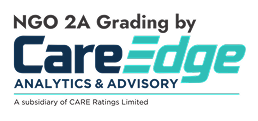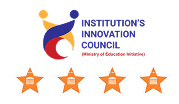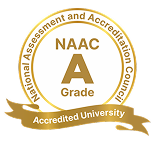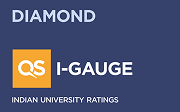OPEN HOUSE 2026 Click here

OPEN HOUSE 2026 Click here

ADMISSION ENQUIRY - 2026
Essential of software foundation & programming–I
GANPAT UNIVERSITY |
||||||||||||||||||||||||||||||||||||||||||||||||||||||||||||||||||||||||||||||||
|
FACULTY OF ENGINEERING & TECHNOLOGY |
||||||||||||||||||||||||||||||||||||||||||||||||||||||||||||||||||||||||||||||||
|
Programme |
Bachelor of Technology |
Branch/Spec. |
Computer Science Engineering (CBA/CS/BDA) |
|||||||||||||||||||||||||||||||||||||||||||||||||||||||||||||||||||||||||||||
|
Semester |
I |
Version |
1.1.0.1 |
|||||||||||||||||||||||||||||||||||||||||||||||||||||||||||||||||||||||||||||
|
Effective from Academic Year |
2022-23 |
Effective for the batch Admitted in |
June 2022 |
|||||||||||||||||||||||||||||||||||||||||||||||||||||||||||||||||||||||||||||
|
Subject code |
2CSE102 |
Subject Name |
ESSENTIAL OF SOFTWARE FOUNDATION & PROGRAMMING – I |
|||||||||||||||||||||||||||||||||||||||||||||||||||||||||||||||||||||||||||||
|
Teaching scheme |
Examination scheme (Marks) |
|||||||||||||||||||||||||||||||||||||||||||||||||||||||||||||||||||||||||||||||
|
(Per week) |
Lecture(DT) |
Practical(Lab.) |
Total |
CE |
SEE |
Total |
||||||||||||||||||||||||||||||||||||||||||||||||||||||||||||||||||||||||||
|
L |
TU |
P |
TW |
|||||||||||||||||||||||||||||||||||||||||||||||||||||||||||||||||||||||||||||
|
Credit |
3 |
0 |
2 |
0 |
5 |
Theory |
40 |
60 |
100 |
|||||||||||||||||||||||||||||||||||||||||||||||||||||||||||||||||||||||
|
Hours |
3 |
0 |
4 |
0 |
7 |
Practical |
60 |
40 |
100 |
|||||||||||||||||||||||||||||||||||||||||||||||||||||||||||||||||||||||
|
Pre-requisites: |
||||||||||||||||||||||||||||||||||||||||||||||||||||||||||||||||||||||||||||||||
|
Basic Operational knowledge of Computer Fundamentals |
||||||||||||||||||||||||||||||||||||||||||||||||||||||||||||||||||||||||||||||||
|
Learning Outcome: |
||||||||||||||||||||||||||||||||||||||||||||||||||||||||||||||||||||||||||||||||
|
After completing the Course, students will be able to,
|
||||||||||||||||||||||||||||||||||||||||||||||||||||||||||||||||||||||||||||||||
|
Theory syllabus |
||||||||||||||||||||||||||||||||||||||||||||||||||||||||||||||||||||||||||||||||
|
Unit |
Content |
Hrs |
||||||||||||||||||||||||||||||||||||||||||||||||||||||||||||||||||||||||||||||
|
1 |
Programming Basics & Logical Building Pseudocode, Flowcharts elements, developing algorithms, Linux basic commands, text editors and GCC,compilers and debuggers, indentation, debugging, code versioning using git |
3 |
||||||||||||||||||||||||||||||||||||||||||||||||||||||||||||||||||||||||||||||
|
2 |
Variables, data types, Operators and I/O functions Basic structure of c program,Character Set, C tokens, Keywords and Identifiers, Constants, Variables, Data types, typedef and Defining symbolic constants, printf - scanf function, Operators Introduction, reading and writing a character,formatted input and output, Different types of Operator, Evaluation of expressions, Precedence of arithmetic operators, Type conversions in expressions, Operator precedence and associativity. |
5 |
||||||||||||||||||||||||||||||||||||||||||||||||||||||||||||||||||||||||||||||
|
3 |
Decision Making and Looping Branching, Various decision making statements and the ternary Operator ,entry controlled and exit controlled loops, Break and Continue, GOTO statement. |
4 |
||||||||||||||||||||||||||||||||||||||||||||||||||||||||||||||||||||||||||||||
|
4 |
Array One-dimensional arrays, Two-dimensional arrays, Concept of Multidimensional arrays. |
4 |
||||||||||||||||||||||||||||||||||||||||||||||||||||||||||||||||||||||||||||||
|
5 |
String handling Declaring and Initializing string variables, Reading and Writing string from terminal, Various string functions, array of strings. |
5 |
||||||||||||||||||||||||||||||||||||||||||||||||||||||||||||||||||||||||||||||
|
6 |
User-Defined Functions Need for user-defined functions, The form of C function, elements of UDF, Return values and their types, category of functions, Nesting of functions, Recursion , Functions with arrays, The scope of variables in functions. |
6 |
||||||||||||||||||||||||||||||||||||||||||||||||||||||||||||||||||||||||||||||
|
7 |
Pointers Understanding pointers, Declaring and initializing pointers, Accessing a variable through its pointer, Pointer expressions, Pointer increments and scale factor, Pointers and arrays, Pointers & character strings, Pointers & Functions |
6 |
||||||||||||||||||||||||||||||||||||||||||||||||||||||||||||||||||||||||||||||
|
8 |
File Management & Command line arguments File structure, File attributes, Standard i/o, Formatted i/o, File Operations, File Error handling, Fundamentals of command line arguments (argc, argv) |
6 |
||||||||||||||||||||||||||||||||||||||||||||||||||||||||||||||||||||||||||||||
|
9 |
Structures and Unions Declaring and initializing Structure variables, accessing Structure members, Copying & Comparison of structures, Arrays of structures, Arrays within structures, Structures within Structures, Structures and functions, Unions, Pointers and structures. |
6 |
||||||||||||||||||||||||||||||||||||||||||||||||||||||||||||||||||||||||||||||
|
Practical content |
||||||||||||||||||||||||||||||||||||||||||||||||||||||||||||||||||||||||||||||||
|
Practicals are based on topics like basic data Types, Operators, decision making, looping, array, Strings, function, Pointers and File management in C, Structure & Unions. Note: All the practicals should be carried out on Linux Operating System and use code versioning using git extensively. |
||||||||||||||||||||||||||||||||||||||||||||||||||||||||||||||||||||||||||||||||
|
Self Studies Topics |
||||||||||||||||||||||||||||||||||||||||||||||||||||||||||||||||||||||||||||||||
|
1) Account creation on Code chef Platform 2) Students can opt for any certifications w.r.t C Programming subject. |
||||||||||||||||||||||||||||||||||||||||||||||||||||||||||||||||||||||||||||||||
|
Mooc Course |
||||||||||||||||||||||||||||||||||||||||||||||||||||||||||||||||||||||||||||||||
|
Course Name: Introduction to Programming in C Link: https://onlinecourses.nptel.ac.in/noc19_cs42/preview Spoken Tutorial STP: Link: https://spoken-tutorial.org/tutorial-search/?search_foss=C+and+Cpp&search_language=English |
||||||||||||||||||||||||||||||||||||||||||||||||||||||||||||||||||||||||||||||||
|
Text Books |
||||||||||||||||||||||||||||||||||||||||||||||||||||||||||||||||||||||||||||||||
|
1 |
Let Us C : Yashavant Kanetkar |
|||||||||||||||||||||||||||||||||||||||||||||||||||||||||||||||||||||||||||||||
|
Reference Books |
||||||||||||||||||||||||||||||||||||||||||||||||||||||||||||||||||||||||||||||||
|
1 |
Programming in C By E. Balagurusamy. |
|||||||||||||||||||||||||||||||||||||||||||||||||||||||||||||||||||||||||||||||
|
2 |
The C Programming Language By Kernighan and Ritchie. |
|||||||||||||||||||||||||||||||||||||||||||||||||||||||||||||||||||||||||||||||
|
Course Outcomes: |
||||||||||||||||||||||||||||||||||||||||||||||||||||||||||||||||||||||||||||||||
|
COs |
Description |
|||||||||||||||||||||||||||||||||||||||||||||||||||||||||||||||||||||||||||||||
|
CO1 |
Understand the fundamentals of programming through flowcharts & logic building steps. |
|||||||||||||||||||||||||||||||||||||||||||||||||||||||||||||||||||||||||||||||
|
CO2 |
Analyze, write, debug and test a well-structured, robust computer program using C Language. |
|||||||||||||||||||||||||||||||||||||||||||||||||||||||||||||||||||||||||||||||
|
C03 |
Apply conditions, loops, basic data types, functions, file handling, structure to various problems. |
|||||||||||||||||||||||||||||||||||||||||||||||||||||||||||||||||||||||||||||||
|
C04 |
Develop the project and enhance the skills of code versioning, testing and documentation. |
|||||||||||||||||||||||||||||||||||||||||||||||||||||||||||||||||||||||||||||||
|
Mapping of CO and PO:
|
||||||||||||||||||||||||||||||||||||||||||||||||||||||||||||||||||||||||||||||||






